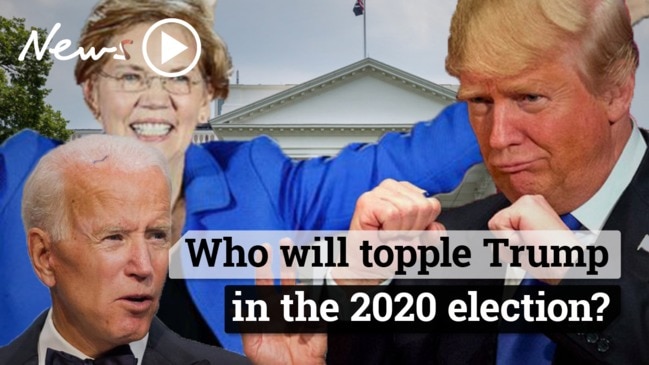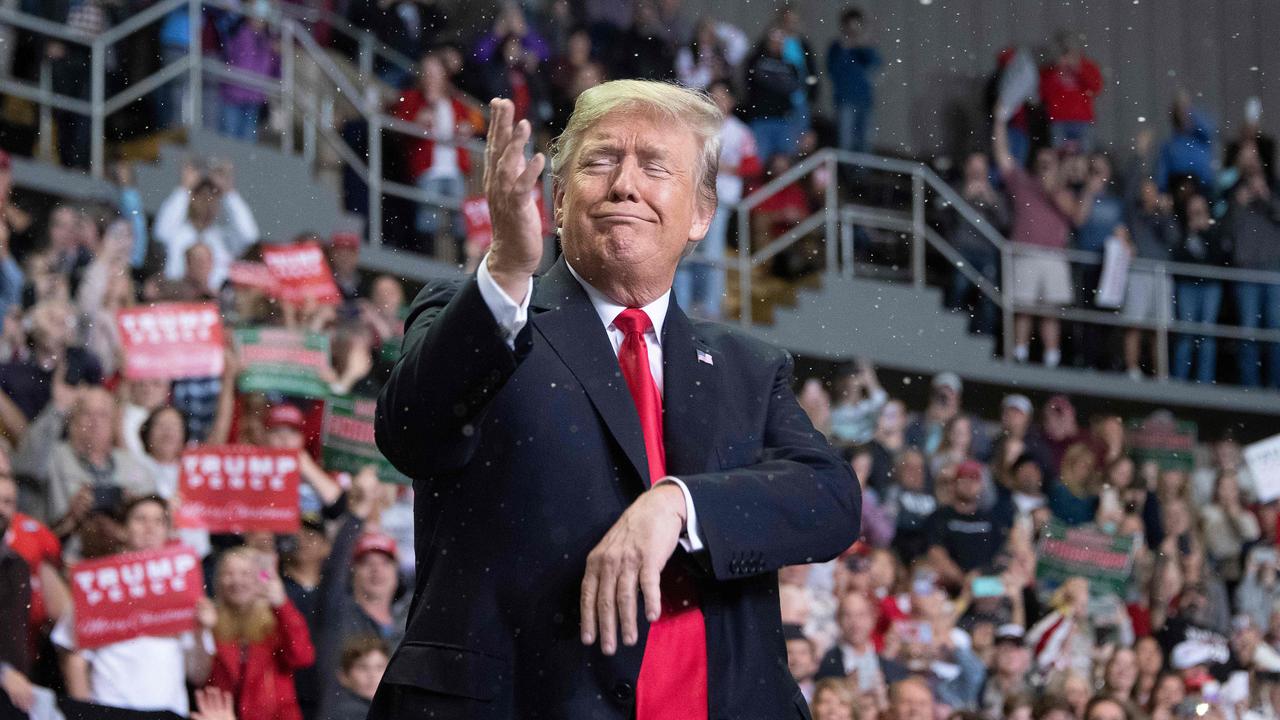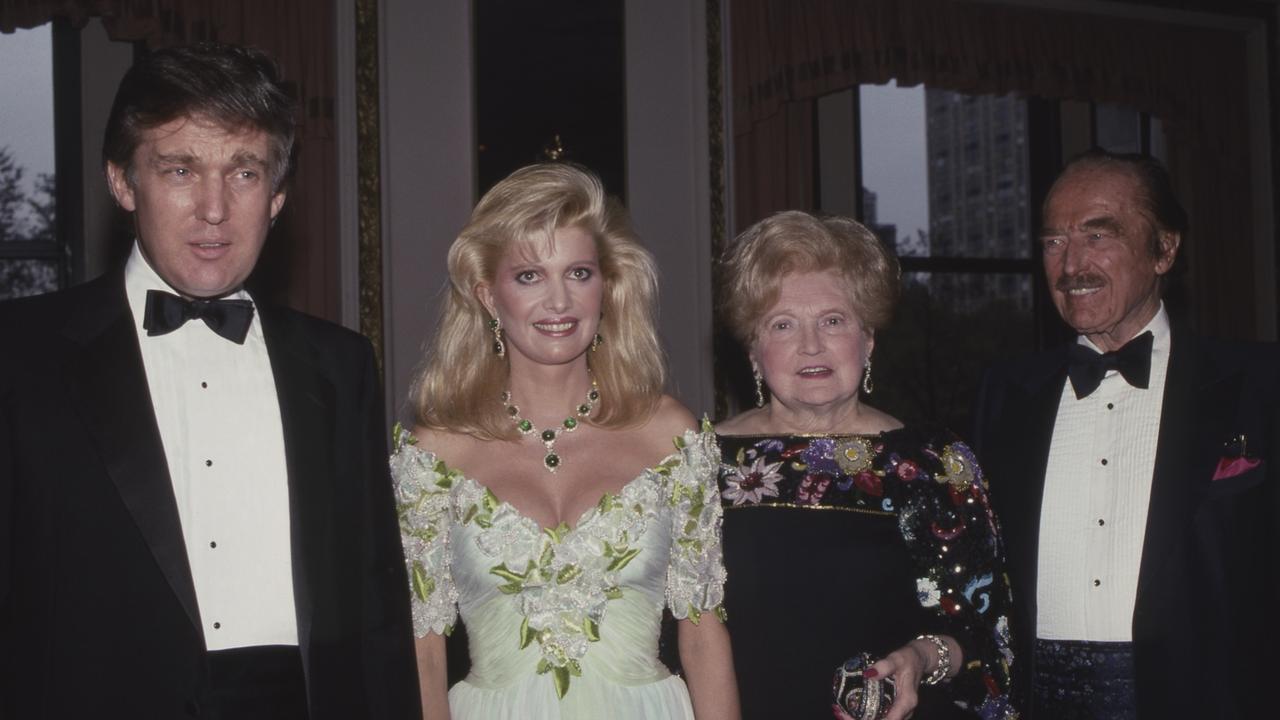Donald Trump wants you to believe he can relate to middle-class Americans
Hundreds of thousands of US workers are struggling thanks to a government shutdown. There’s one reason Trump is getting away with it.

This is the 18th day of a partial government shutdown in the United States.
The partial government shutdown is starting to hurt Americans, with 800,000 federal workers — including “anxious and angry” members of the Secret Service — whose next scheduled pay cheques won’t be issued.
It comes after a quarter of government agencies closed down over President Donald Trump’s insistance that a wall between the US and Mexico be built.
There is no definite end in sight, with the only assurance for disgruntled workers being Mr Trump’s recent claim that he can “relate” to their ongoing financial pains.
The President has been slammed over the remark, but some analysts say there’s a very good reason he gets away with it.
It’s the same trick that helped him win the election in the first place.
TRUMP: ‘I CAN RELATE’ TO UNPAID WORKERS
As news.com.au reported from New York, many low-paid government workers have been stressing over how to feed their families, with some describing going into “panic mode”, starting GoFundMe pages and contemplating selling off their possessions to get by.
In stark contrast, Vice President Mike Pence and hundreds of senior Trump aides are set to receive pay rises of more than $10,000 during this turmoil.
Speaking to reporters ahead of a Sunday morning trip to Camp David to discuss border security, Mr Trump said he could “relate” to the hundreds of thousands of workers stuck without pay.
“I can relate,” he told NBC News correspondent Kelly O’Donnell. “And I’m sure that the people that are on the receiving end will make adjustments. They always do. And they’ll make adjustments. People understand exactly what’s going on. Many of those people that won’t be receiving a pay cheque, many of those people agree 100 per cent with what I’m doing.”
The celebrity billionaire’s remark sparked a backlash, with high-profile critics noting he had never felt the financial struggles of middle-class America.
It took someone I know, 1 hour 20 minutes to get thru TSA at MIA this morning. If u think a partial shutdown won't cause chaos & pain not only to some federal workers, but also to regular Americans & the economy, you're wrong. And if you think Trump can relate, you're dead wrong.
— Ana Navarro (@ananavarro) January 7, 2019
Trump says he can relate to federal workers who aren’t getting paid. This coming from a trust fund baby who thinks he needs a license to buy groceries. The most out of touch, greedy, corrupt, ignorant & illegitimate president in US history—a pathetic pathologically lying traitor.
— Scott Dworkin (@funder) January 6, 2019
. @realDonaldTrump may be telling the truth about relating...just not personally
— Stephanie Ruhle (@SRuhle) January 7, 2019
Many of the lenders, contractors, architects & sub-contractors who worked with & for the Trump Organization got paid late, short or completely stiffed.
So yes - he can relate. https://t.co/1xiibfnhTk
Government workers affected by the shutdown have also spoken out against the remark.
“I find it hard to believe that a billionaire can relate to anyone who lives possibly pay cheque to pay cheque, which many of the American people do,” Julie Burr told CNN.
“I just want the government to be back up and running, and I want to get back and earn my pay cheque.”
IT specialist Andrea Popelka expressed a similar sentiment.
“From what I’ve seen, I don’t see him living from pay cheque to pay cheque. I don’t think he can relate to that and I feel all the issues that everyone faces are looked over.”
But why don’t Mr Trump’s supporters see a problem with this? Some analysts say it’s because he’s managed to convince people that he’s “just like them” — despite having been born into a world of money, status and privilege.
“Donald Trump considers himself the world’s greatest deal-maker — a salesman extraordinaire. Perhaps the greatest sale he’s ever made is the idea that he is a man of the people. It’s the sale that made him the president,” CNN’s Chris Cillizza wrote.
Mr Trump doesn’t exactly hide his wealth. In fact, he sometimes goes out of his way to refer to himself as even more elite than the so-called “elite”.
In a Minnesota speech last June, he said of his critics: “You ever notice they always call the other side ‘the elite’? ‘The elite’! Why are they elite? I have a much better apartment than they do. I’m smarter than they are. I’m richer than they are. I became president and they didn’t.”

But despite openly admitting — at least in a roundabout way — that his working-class supporters are actually nothinglike him, the crowds lapped it up.
“Why? My educated guess is because, for Trump’s supporters, it’s less about the President’s actual background — which is elite in every sense of the word — and more about who he is now,” Cillizza wrote.
“He tells it like it is! He sticks it to these self-satisfied elites! And I tend to believe that Trump’s wealth and background actually make him more credible with these voters because he was one of those elites but is now running them down. He’s turned on the elites, and they can’t deal with it! Or something like that.”
At the same time, Mr Trump sought respect by proclaiming himself a self-made billionaire — a claim widely panned in the US media as a myth.
“My whole life really has been a ‘no’ and I fought through it,” he said in 2015. “It has not been easy for me, it has not been easy for me. And you know I started off in Brooklyn; my father gave me a small loan of a million dollars.”
Yet recent investigations have revealed that Mr Trump’s headstart in life — and the lifetime of financial security he was afforded — was far greater than he wanted it to look like.
THE TRUTH BEHIND TRUMP’S WEALTH
Mr Trump was no self-made billionaire. His father, Fred Trump, made a sizeable fortune by building and selling housing in New York City.
Shortly after graduating from business school in the 1960s, Mr Trump received $US1 million from his father to help him get started — or the equivalent of about $US7 million in today’s money.

But in October, an explosive New York Times investigation revealed that Mr Trump helped “his parents dodge taxes” and received far more money from his father’s real estate empire than the $1 million he claimed.
The investigation uncovered a pattern of tax evasion that allowed Mr Trump to receive $US413 million in today’s dollars from his father through alleged dodgy acts.
The bombshell report alleged Mr Trump and his siblings received hundreds of millions of dollars from his father Fred’s real estate empire, starting from when they were children.
They reportedly “set up a sham corporation to disguise millions of dollars in gifts from their parents”, and Mr Trump “helped his father take improper tax deductions worth millions more” by undervaluing his real estate holdings.
Experts said the alleged actions amounted to “outright fraud”.
Over several decades, Mr Trump’s parents allegedly funnelled more than $1 billion to their children in gifts. The state of New York had a 55 per cent tax rate on such transactions, but according to records, the Trumps paid a mere 5 per cent in taxes on them.
If true, what did all this mean for Mr Trump? By age three, he was earning $200,000 a year in today’s dollars from his father’s empire. By age eight, he was a millionaire. By the time he’d graduated from college, he was receiving $1 million per year from his father.
In short, it’s fair to assume he’s never lived pay cheque to pay cheque in his life.
Charles Harder, a lawyer representing Mr Trump, said the Times’ claims were “100 per cent false”.
At the same time, Mr Trump has consistently refused to release his tax returns to the public, in an unusual move for a US president.



